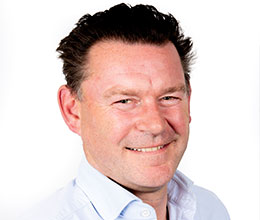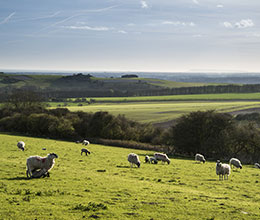Covid-19 – a view from the country
Willy Browne-Swinburne is a Northumbrian landowner, farmer and businessman. He has, for the last six years, been an Associate Director of Rural Solutions, a leading rural diversification and development specialist. He is Regional Chairman of the North East CLA, Historic Houses Northumbria, The Northumberland and Durham Game and Wildlife Conservation Trust and is a main Board Director of the Atlantic Salmon Trust. Rural Northumberland, it’s communities, heritage and environment is his passion. Here, he finds positivity in the Covid-19 situation…
Coronavirus, as I write, is the single most printed word in the universe.
It has put things into a perspective that very few could have considered even a few weeks ago.
It is 17th March and I write from a remote part of Northumberland. Predominantly agricultural, we are in the throes of lambing. Everyone on my patch is not concerned with catching a virus but with keeping their new arrivals alive. It seems that spring has just got colder than winter. 
We, like all rural estates, have sought to diversify and over the last 12 years have invested in all sorts of initiatives to reduce our exposure to agriculture and traditional rural business. Unfortunately, it seems that Covid19 has, as nature often does, found a weakness in this approach.
Our wedding bookings this year, are not huge but better than ever before with eight booked for the summer. All of these are now looking to postpone until 2021 which means that Summer 2021 will see 16 weddings, putting the old place under some serious pressure.
The holiday accommodation, at this moment, looks like it will struggle to let and our garden openings, heritage tours and corporate events programme looks under threat.
Opportunities will arise during this time
But weirdly, there are some opportunities evolving. We have just taken an enquiry from a family who would like to ‘isolate’ somewhere remote and are currently negotiating a two-month stay in our largest property. It’s staycation but not as we know it.
Cath, who runs our local shop and post office is starting to do a roaring trade as the ‘social isolators’ and homeworkers, particularly the older ones, don’t just buy their ‘paper and fags’ from her but now, their whole shop, to avoid the mania of the supermarket.
I had a long conversation with my friend, Dr Paul Cowie, Research Fellow at the Centre for Rural Economy, Newcastle University yesterday. He is doing an interesting piece of research on rural workspace. His observation was that, in the longer term, providing shared workspace in rural areas, with good connectivity, was a real opportunity. The Coronavirus combined with concerns over climate change bringing greater acceptance of home working could be another contributing factor to support this new and thriving sector in the rural economy.
A client with a garden centre has told us they are having their biggest trading days since the summer bank holiday. I imagine sales of crafts and games will also be up.
My limited exposure to social media suggests that some rural businesses are quickly innovating and ‘diversifying’. Offering more takeaway services or home deliveries and suggesting purchases of gift vouchers are just a couple of the ideas proving popular. Inevitably, social media will come into its own as a crucial tool for businesses to survive and communities to communicate and offer support for those in need.
Freeing up time to focus on other tasks
This period will also prove a valuable time to get all those things you wanted to change sorted out. The track for the catering team that serves our marquee site can now be done, as we have time. The redecorating of one of the older cottages can be achieved without the pressures of guests arriving.
 In the 2001 Foot and Mouth crisis, my grandfather, then aged 98 and having farmed all his life said: “it’s not a bad thing, it’ll give the land a rest”. I feel slightly the same about all the current situation. It’s awful but it does present opportunities and crucially some time to really think about what we are doing.
In the 2001 Foot and Mouth crisis, my grandfather, then aged 98 and having farmed all his life said: “it’s not a bad thing, it’ll give the land a rest”. I feel slightly the same about all the current situation. It’s awful but it does present opportunities and crucially some time to really think about what we are doing.
Having said all that, the truth is we are best placed when risk is spread and like any other economy or environment, diversity is key. In our wonderful countryside, we have an asset that can provide sustenance, experience, enjoyment and tranquillity. This crisis may well mean that people think more carefully in future about travelling abroad and as our supply chains are challenged it may prove that over-reliance on food imports is unwise. It could be a win for both the traditional and diversified.
These are the reflections of an isolated countryman but, if, through all of this extraordinary and ghastly business, a wider understanding emerges that Rural Britain is not the poor relation to global markets and urban-based service industry but an asset brimming with opportunity. The long term outlook may be more positive than we think.
- Log in to post comments

